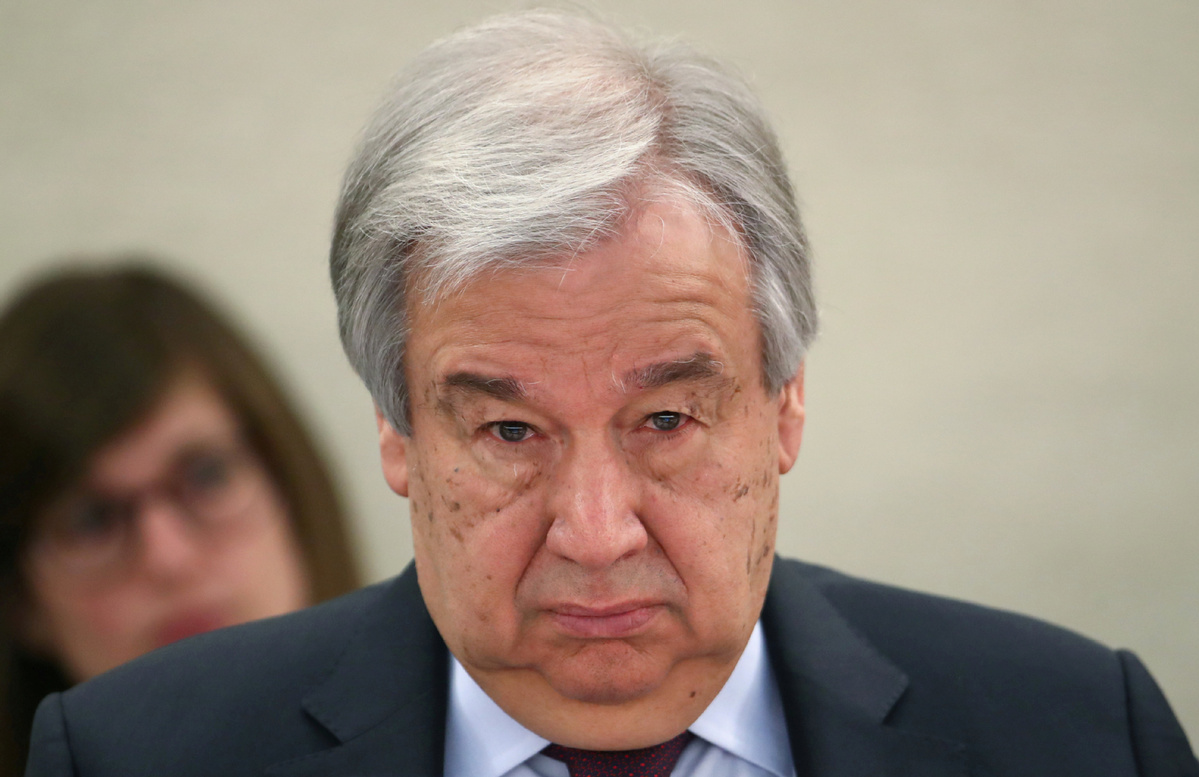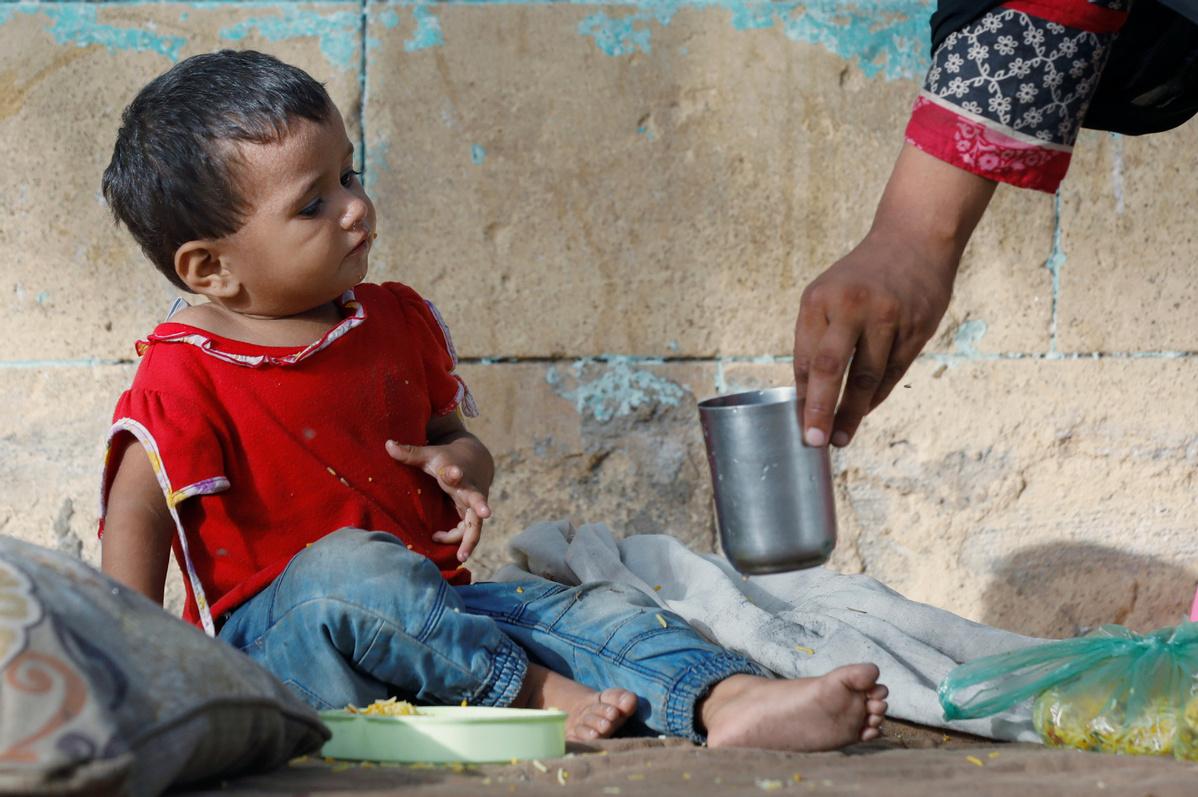UN chief: Protect the vulnerable
By HONG XIAO at the United Nations | China Daily Global | Updated: 2020-07-03 11:31

The COVID-19 pandemic continues to profoundly affect peace and security across the globe, the secretary-general of the United Nations told the UN Security Council on Thursday, pressing the 15-member body to bring its voice and influence to bear to protect the millions of people either trapped in or fleeing conflict.
"The health pandemic has fast become a protection crisis", Secretary-General Antonio Guterres warned.
"More than 1 billion children are out of school. More than 135 million people could be on the brink of starvation by the end of this year. Routine immunization services are being disrupted on an unprecedented scale, raising the likelihood of major outbreaks of diseases, and healthcare workers and humanitarian personnel have themselves been targeted for unconscionable attacks," he said.
"These wide-ranging risks require an urgent and united response, including from the Security Council," he said at a virtual open debate titled "Maintenance of International Peace and Security: Pandemics and Security" held by the Security Council.
The high-level debate, convened by Germany, which is Security Council president for July, follows the council's passage on Wednesday of Resolution 2532 (2020), which demands a general and immediate cessation of hostilities in all situations on its agenda.

"The council has an important role to bring its voice and influence to bear on these situations, and I welcome your support, expressed in the resolution adopted yesterday," said Guterres.
Zhang Jun, permanent representative of China to the UN, said that as COVID-19 continues to spread across the world, countries are facing the daunting tasks of fighting disease, saving lives, stabilizing economies and ensuring livelihoods.
"We must put people and life first, do our utmost to protect people's safety and health, and minimize the impact of the virus," Zhang said.
Zhang said that the pandemic once again proves that the world is a global village with a shared destiny. Solidarity and cooperation are the most powerful weapons in fighting the pandemic, he said, adding that China is ready to work with all parties, uphold the UN-centered international system, and support the World Health Organization in contributing more to the global fight against COVID-19.
Zhang emphasized that the Security Council should take action to accelerate the implementation of the secretary-general's call for a global cease-fire.
Zhang also said, "China highly appreciates the tireless efforts by the WHO, International Committee of the Red Cross and other UN health and humanitarian specialized agencies in coordinating and providing health assistance."
Zhang stressed that humanitarian assistance should abide by the UN Charter and principles established by General Assembly Resolution 46/182. Efforts should also be made to protect humanitarian workers, he said.
"We hope the member states and the Secretariat will continue to fully implement the Security Council Resolution 2518, help the troop-contributing countries and peacekeeping missions strengthen early warning, health support, critical medical capacity and improve training to truly safeguard life and health of peacekeepers," he said.
China has proposed recommendations and measures on the global fight against the novel coronavirus pandemic, including its decisions to make its vaccine, "once available, a global public good," provide $2 billion in international aid to affected countries, especially developing countries, cancel government interest-free loans owed by African countries due to mature by the end of 2020, and implement the G20 Debt Service Suspension Initiative.
To strengthen international coordination, China also held a China-Africa summit on solidarity against COVID-19 and a high-level videoconference for international cooperation in the framework of the Belt and Road Initiative.
"Virus respects no borders or races. Politicizing and stigmatizing lead to nowhere. Countries should take up responsibilities, respect science, replace differences with unity, dispel prejudice with reason, form synergies in the global fight, and build a better future for all," Zhang said.
























